Look, I’ve spent countless hours testing these platforms (probably too many), and I can tell you that choosing the right e-commerce solution isn’t just about features – it’s about finding your perfect match. Let’s dive into the heavy hitters that give Shopify a run for its money.
Enterprise-Level Alternatives
1. Adobe Commerce (Formerly Magento)

Image Source: Adobe Commerce
Remember when Magento was the cool kid on the block? Well, Adobe bought them out and gave them a fancy makeover. Adobe Commerce is like the Ferrari of e-commerce platforms – absolutely stunning when done right, but you better have deep pockets and a skilled mechanic (developer) on speed dial.
The platform’s enterprise features are nothing short of impressive. We’re talking about handling multiple stores from a single dashboard, creating complex B2B catalogs, and supporting global operations that would make your head spin. But here’s the kicker – the total cost of ownership can make your accountant break out in a cold sweat.
Migration considerations? Let’s just say it’s not for the faint of heart. You’ll need a solid team, a clear strategy, and probably a few bottles of your favorite stress-relief beverage.
If you’re considering platforms, check out Shopify vs Amazon FBA for more insights.
2. BigCommerce Enterprise
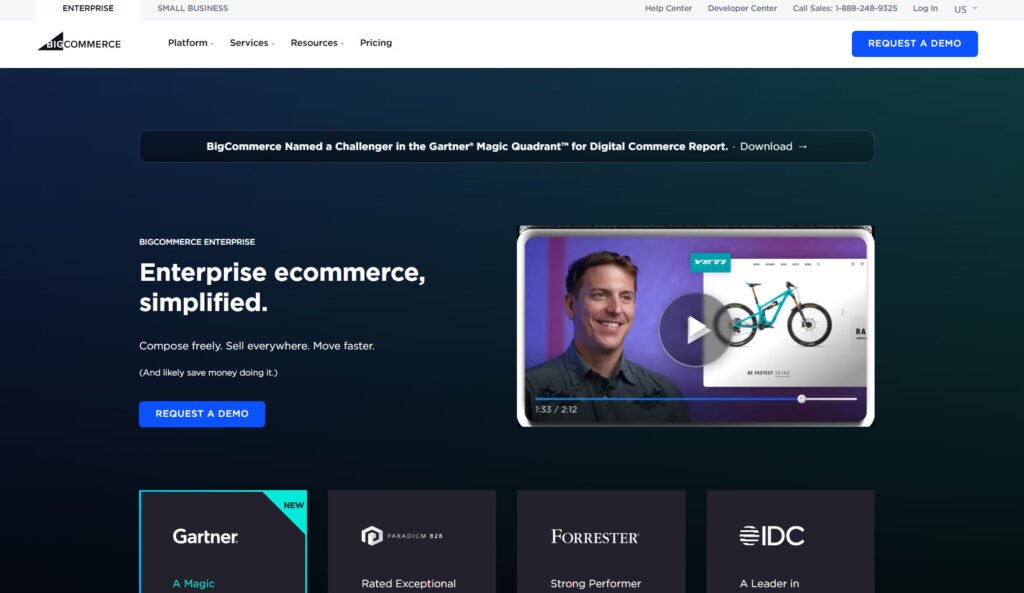
Image Source: Bigcommerce Enterprise
If Adobe Commerce is the Ferrari, BigCommerce Enterprise is the Tesla – modern, powerful, and surprisingly user-friendly. Their B2B features are particularly impressive, and trust me, I’ve seen them handle some seriously complex operations without breaking a sweat.
The multi-channel capabilities are where BigCommerce really shines. You can sell everywhere your customers are hanging out – Amazon, eBay, Walmart, social media – all managed from one place. Their API is so flexible, it makes Shopify’s look like a rigid gym instructor. For a broader view, explore our background design page.
For tips on optimizing your store, see best Shopify review app.
Mid-Market Solutions
1. WooCommerce
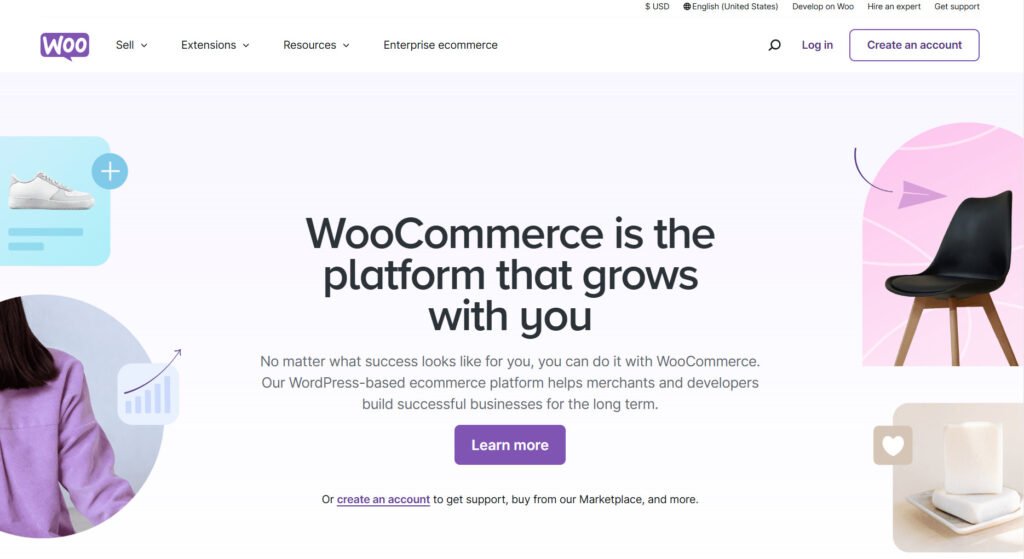
Image Source: Woocommerce
As a WordPress enthusiast (yeah, I’ll admit it), I’ve got a soft spot for WooCommerce. It’s like that reliable friend who’s always there when you need them, especially if you’re already in the WordPress ecosystem. The plugin ecosystem is massive – think App Store massive – and you can find a solution for pretty much anything you want to do.
But here’s what most reviews won’t tell you: hosting requirements can be tricky. You’ll need to be comfortable managing your own hosting or partner with a solid managed WordPress host. The cost structure might look attractive at first (it’s free!), but add up all those premium plugins and hosting costs, and you might find yourself spending more than you planned. Learn more about apps like Temu that integrate well with WooCommerce.
2. PrestaShop
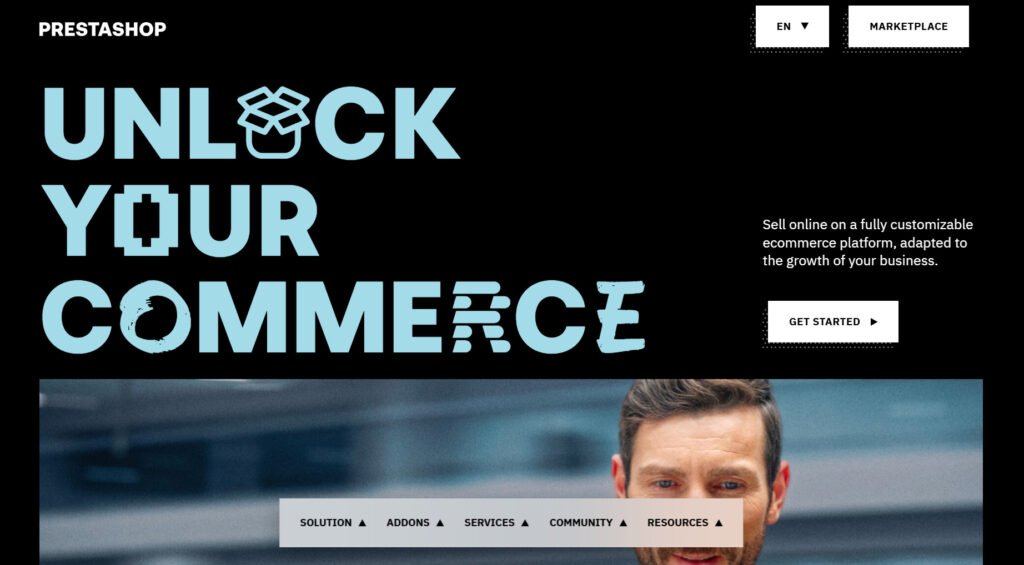
Image Source: Prestashop
PrestaShop is like that European exchange student who’s way cooler than they first appear. It’s huge in Europe (seriously, it’s everywhere), and there’s a good reason for that. The open-source nature means you’ve got complete control over your store, and the community support is incredible.
But let me be real with you – the technical requirements can be intimidating if you’re not tech-savvy. You’ll need to handle hosting, security, and updates yourself. It’s like owning a classic car – rewarding, but you need to know your way around under the hood. For a broader view, explore our sites like Temu blog.
Small Business Options
1. Squarespace Commerce

Image Source: Squarespace
Listen, if you’re a design perfectionist (like yours truly), Squarespace Commerce will make you weak in the knees. Their templates are gorgeous right out of the box, and the interface is so intuitive my mom could probably set up a store (hi, Mom!).
The platform shines in its ease of use – it’s practically impossible to make an ugly store. But there’s a trade-off: integration limitations. You’re pretty much stuck with their built-in tools and a handful of approved integrations. It’s like living in a beautiful gated community – gorgeous but sometimes restrictive. If returns are a concern, check out the Temu return policy.
2. Wix eCommerce
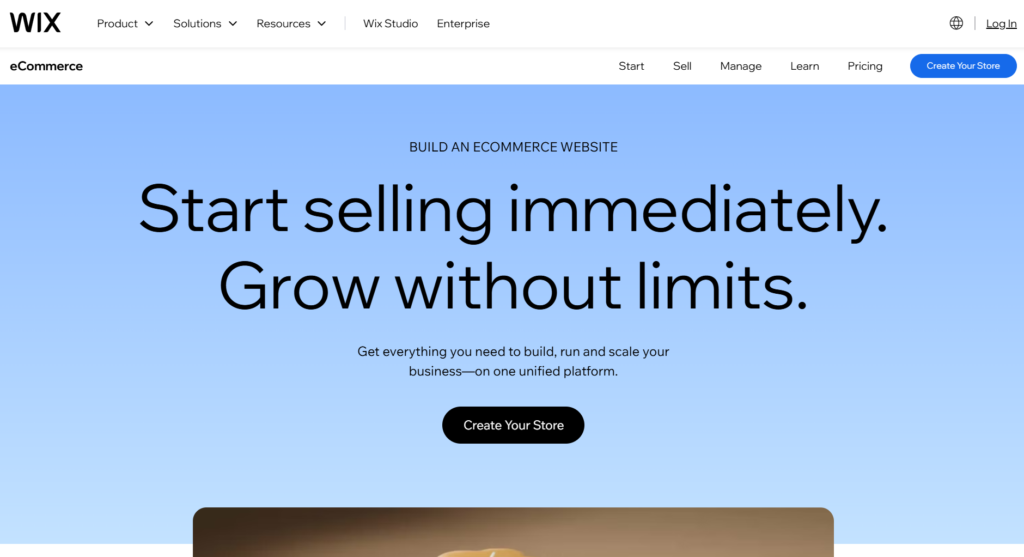
Image Source: Wix eCommerce
Wix is that jack-of-all-trades friend who somehow manages to be pretty good at everything. Their website builder integration is smooth as butter, and their marketing tools are surprisingly robust. Plus, their AI site builder is pretty neat (though as an AI company founder, I might be a bit biased about AI tools).
Here’s the thing about Wix – it’s perfect for small businesses just starting out, but scalability can become an issue as you grow. Think of it like your first apartment – perfect for beginning your journey, but you might outgrow it eventually. For private label sellers, explore Amazon private label insights.
Specialized Shopify Alternatives
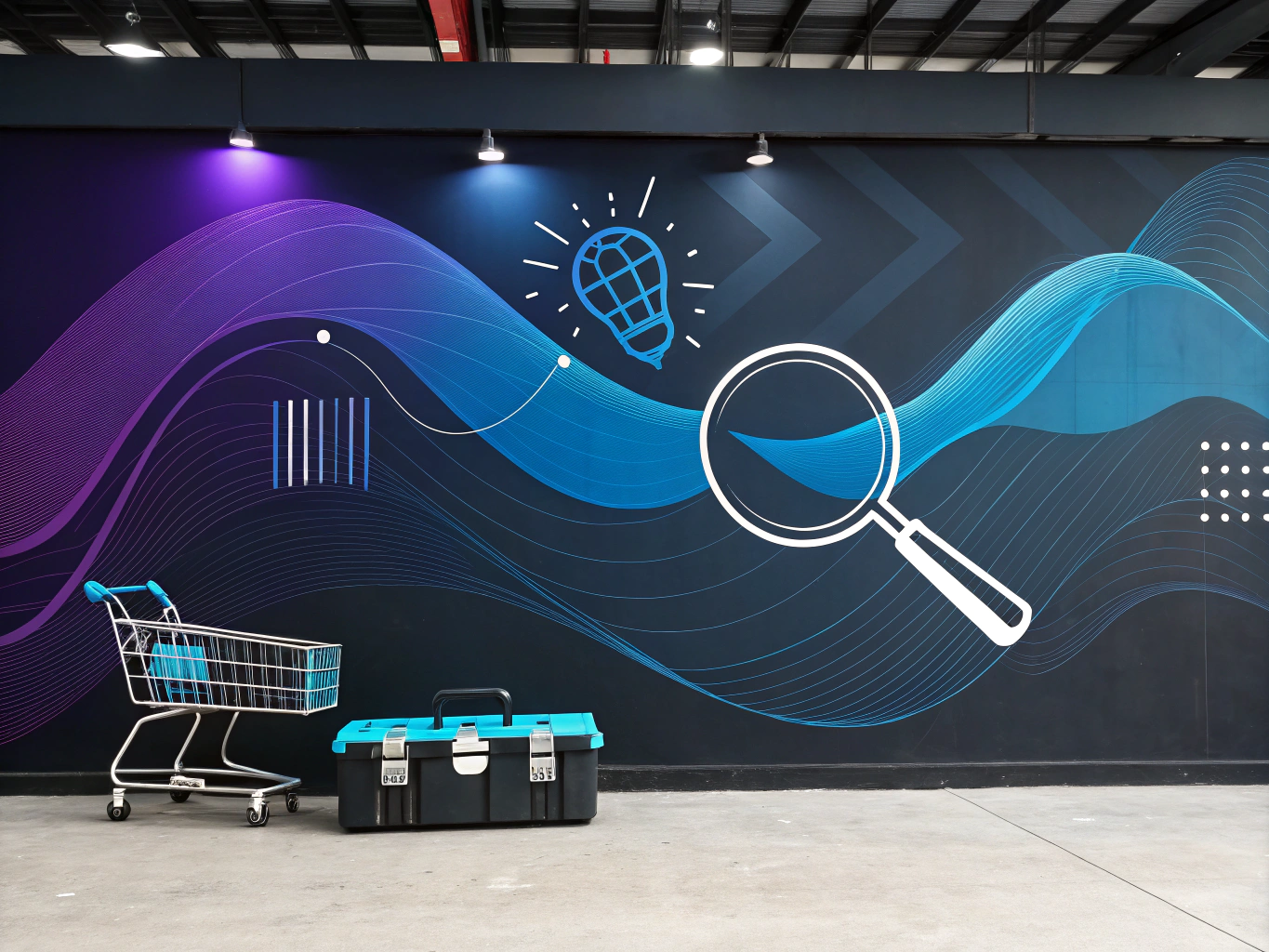
Niche Market Platforms
Let’s talk about the specialists – these platforms might not be trying to be everything to everyone, but they absolutely crush it in their specific niches.
1. Big Cartel (Artists & Creators)
Big Cartel is like that cool art gallery in Brooklyn that actually cares about its artists. It’s built specifically for creators, with a pricing structure that makes sense for small inventory loads and a vibe that screams “indie creative.” If you’re an artist selling your work, this platform gets you in a way Shopify never will. For more resources, visit our homepage.
2. Ecwid (Multi-channel Sellers)
Ecwid is the platform equivalent of a Swiss Army knife for multi-channel sellers. It started as a simple plugin but evolved into a powerful tool that lets you sell literally anywhere. I’ve seen businesses run their entire operation through Ecwid while maintaining stores on Facebook, Instagram, and their existing website. Consider reading about Amazon PPC for marketing strategies.
3. Shopware (European Markets)
If you’re eyeing the European market, Shopware deserves your attention. It’s like the German engineering of e-commerce – precise, efficient, and built to last. Plus, it’s already compliant with EU regulations, which is a massive headache avoided. For description help, see our blog on Amazon merch descriptions.
Hybrid Solutions
1. Odoo (ERP + E-commerce)
Odoo is what happens when an ERP system and an e-commerce platform have a baby. It’s not just about selling products – it’s about running your entire business. The integration between your online store, inventory, accounting, and CRM is seamless, though there’s definitely a learning curve. If you’re also using Instagram in lieu with this platform, read about posting on Instagram.
2. Webflow (Design + E-commerce)
As someone who appreciates good design, I’ve got to tip my hat to Webflow. It’s like Squarespace’s more technical cousin who went to design school. The level of customization you can achieve without touching code is impressive, though you’ll need to be comfortable with a more complex interface. Interested in optimizing titles? Check out Amazon product title tips.
3. Square Online (POS + E-commerce)
Square Online is perfect if you’re running a brick-and-mortar store and want to expand online. The integration between their POS system and digital storefront is practically seamless. Plus, their card readers are some of the most reliable I’ve seen in the business.
The best part? Square’s pricing structure is transparent and fair, especially if you’re already using their payment processing. It’s like having a business partner who actually wants you to succeed (and those are rare, trust me). For more ideas, see product image backgrounds.
Making the Final Call: How to Choose Your Shopify Alternative

Look, I’ve been in the e-commerce game long enough to know that choosing a platform isn’t just about features and pricing – it’s about finding the right fit for your specific situation. Here’s my framework for making that decision:
The Honest Self-Assessment
- Technical Expertise: Be real about your tech skills (or your team’s). WooCommerce might look attractive price-wise, but if you don’t know WordPress, you might end up spending more on developers.
- Growth Trajectory: Where do you see yourself in 2-3 years? Some platforms are great for starting but become limiting as you scale.
- Budget Reality: Factor in not just the platform cost, but also apps, plugins, and potential development needs.
- Time Investment: How much time can you realistically dedicate to learning and managing your platform?
Future-Proofing Your Choice
The e-commerce landscape is changing faster than New York minute. Here’s what to consider for the long haul:
Emerging Tech Integration
AI and machine learning aren’t just buzzwords anymore – they’re becoming essential tools for e-commerce success. Look for platforms that are actively investing in these technologies. Square, for instance, has been making serious moves in AI-powered analytics, while BigCommerce is leading the charge in headless commerce solutions.
Mobile Commerce Evolution
With more than 70% of e-commerce traffic coming from mobile devices, your platform needs to be mobile-first, not just mobile-friendly. Platforms like Wix and Squarespace have really stepped up their mobile game, often outperforming Shopify in this area.
Social Commerce Integration
The lines between social media and e-commerce are blurring fast. Your platform should make it easy to sell directly through social channels. This is where specialized platforms like Ecwid often shine brighter than the big players.
The Bottom Line: Making Your Decision
After spending years in this space and watching countless businesses succeed (and sometimes struggle) with various platforms, here’s my straight-shooting advice:
For Small Businesses and Startups
If you’re just starting out or running a smaller operation, consider Square Online or Wix. They’re more affordable than Shopify, easier to use, and still pack enough features to get you going. Plus, Square’s POS integration is hard to beat if you’re doing any in-person sales.
For Mid-Size Businesses
WooCommerce or BigCommerce might be your sweet spot. They offer more flexibility than Shopify at a better price point, especially if you’re comfortable with a bit more technical involvement. The learning curve is steeper, but the payoff in terms of customization and control is worth it.
For Enterprise-Level Operations
If you’re running a larger operation, Adobe Commerce (formerly Magento) or BigCommerce Enterprise are solid choices. Yes, they’re more expensive and complex than Shopify Plus, but they offer the kind of robust features and customization that enterprise-level businesses need.
Final Thoughts: Beyond the Platform
Remember, the platform is just one piece of the puzzle. Your success in e-commerce depends more on your product, marketing, and customer service than which platform you choose. Don’t get paralyzed by analysis – pick the platform that feels right for your current needs and start selling.
And hey, if you’re still not sure, most of these platforms offer free trials. Take them for a test drive. There’s no better way to know if a platform is right for you than by actually using it.
The e-commerce world is constantly evolving, and what works today might need to change tomorrow. The key is staying flexible and being willing to adapt as your business grows and changes. Whether you choose Shopify or one of its alternatives, remember that the platform is just a tool – it’s what you do with it that really matters.
👉👉 Create Photos, Videos & Optimized Content in minutes 👈👈
Related Articles:
- Shopify vs Amazon FBA: A Seller’s Complete Guide – ProductScope AI
- Best Shopify Review Apps: Top 10 Picks for 2024 – ProductScope AI
- Apps Like Temu: 7 Best Alternatives for Budget Shopping
Frequently Asked Questions
What are Shopify’s business needs?
When evaluating Shopify competitors, it’s crucial to consider your specific business needs such as budget, scalability, ease of use, and the type of products you sell. Some platforms may offer better customization options or lower transaction fees, while others might excel in providing integrated marketing tools or multi-channel selling capabilities. Identifying your priorities will help narrow down the best alternatives for your e-commerce strategy.
What is a digital storefront?
A digital storefront is an online platform where businesses can showcase and sell their products or services to consumers. Unlike physical stores, digital storefronts operate on e-commerce platforms like Shopify, WooCommerce, or BigCommerce, which provide the necessary tools to manage inventory, process payments, and create a seamless shopping experience for customers. Choosing the right platform depends on your design preferences, technical skills, and business goals.
Are there other sites like Shopify?
Sites like Shopify include BigCommerce, WooCommerce, Wix, and Squarespace, each offering unique features to cater to different e-commerce needs. BigCommerce is known for its scalability and robust analytics, while WooCommerce offers extensive customization through WordPress. Wix and Squarespace are ideal for smaller businesses or those with a focus on design, providing user-friendly interfaces and attractive templates.
How is Shopify vs other platforms?
When comparing Shopify vs other platforms, it’s important to assess factors such as pricing, ease of use, customization, and support. Shopify is praised for its comprehensive app ecosystem and user-friendly interface, but competitors like WooCommerce offer more flexibility in terms of customization and control, often at a lower cost. Depending on your business model and technical expertise, one platform might suit your needs better than the other.
Are there other websites like Shopify?
Websites like Shopify include alternatives such as Magento, Volusion, and 3dcart, which offer various features tailored to different business requirements. Magento is known for its powerful customization and scalability, making it suitable for larger enterprises, while Volusion and 3dcart provide more straightforward solutions for small to medium-sized businesses. Each platform offers distinct advantages that can align with specific business goals and technical capabilities.
About the Author
Vijay Jacob is the founder and chief contributing writer for ProductScope AI focused on storytelling in AI and tech. You can follow him on X and LinkedIn, and ProductScope AI on X and on LinkedIn.
We’re also building a powerful AI Studio for Brands & Creators to sell smarter and faster with AI. With PS Studio you can generate AI Images, AI Videos, Chat and Automate repeat writing with AI Agents that can produce content in your voice and tone all in one place. If you sell on Amazon you can even optimize your Amazon Product Listings or get unique customer insights with PS Optimize.
🎁 Limited time Bonus: I put together an exclusive welcome gift called the “Formula,” which includes all of my free checklists (from SEO to Image Design to content creation at scale), including the top AI agents, and ways to scale your brand & content strategy today. Sign up free to get 200 PS Studio credits on us, and as a bonus, you will receive the “formula” via email as a thank you for your time.
